Tár is undoubtedly the most striking film I’ve encountered in recent memories, distinguished by its intricate themes, masterfully precise cinematography and performances.
It carries almost a distinctly German sense of sharpness and precision, which, in my view, ties seamlessly into one of its central themes: the almost unattainable balance between power and morality.
By power, we are not referring to the use of tyranny, but rather the demonstration of competence that is sometimes accompanied by tyrannical behavior.
A few words on Tár

Tár is a movie released in 2022 directed by none other than Todd Field, who notably portrayed Nick Nightingale, the pianist in Eyes Wide Shut, the character responsible for revealing the “Fidelio” password to Tom Cruise’s Bill Harford.

Tár is exploring themes of power, morality, and ambition through the lens of Lydia Tár, a world-renowned conductor. The film delves into the complexities of genius and the consequences of unchecked authority, all while presenting a meticulously precise visual and narrative style. With its thought-provoking themes and powerhouse performances, Tár stands as a striking examination of human flaws and societal dynamics.
The Cinematography
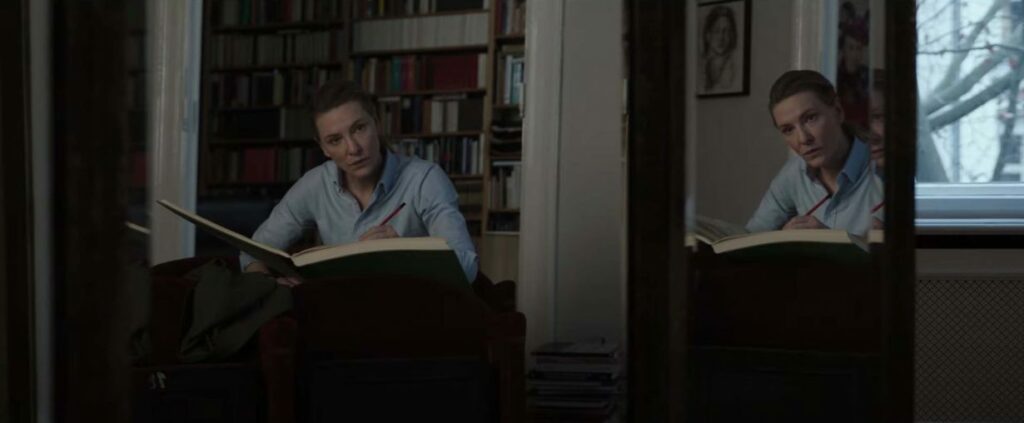
The film is primarily set in Berlin, where Tár serves as the chief conductor of the prestigious Berlin Philharmonic.
It’s only natural that the cinematography is helmed by Florian Hoffmeister, a study in meticulous precision and subtle storytelling. The film employs clean, deliberate framing and a muted color palette to mirror Lydia Tár’s controlled and refined world.

Long takes and naturalistic lighting draw viewers into the intimate spaces of her life, while the restrained camera movement reflects the tension and unspoken undercurrents of power. This approach not only enhances the narrative’s complexity but also underscores the film’s themes of control, disintegration, and vulnerability.
The cast

The cast of Tár is meticulously chosen, with Cate Blanchett delivering a career-defining performance as Lydia Tár. Nina Hoss portrays Sharon, Lydia’s partner, with a subtle intensity that complements Blanchett’s towering presence.
Noémie Merlant shines as Francesca, Lydia’s loyal yet conflicted assistant, while Sophie Kauer, a real-life cellist, brings authenticity to the role of Olga, the talented newcomer. Each cast member, including competitor Mark Strong, contributes layers of nuance, enhancing the film’s exploration of power, relationships, and ambition.

Cate Blanchett, in my opinion, stands out as one of the finest actresses of her generation. Her performance in Blue Jasmine was remarkable, but her portrayal of Lydia Tár may very well be her greatest achievement yet. I have seldom witnessed such a masterful portrayal of a character with this level of complexity.
A portrayal of Lydia Tár
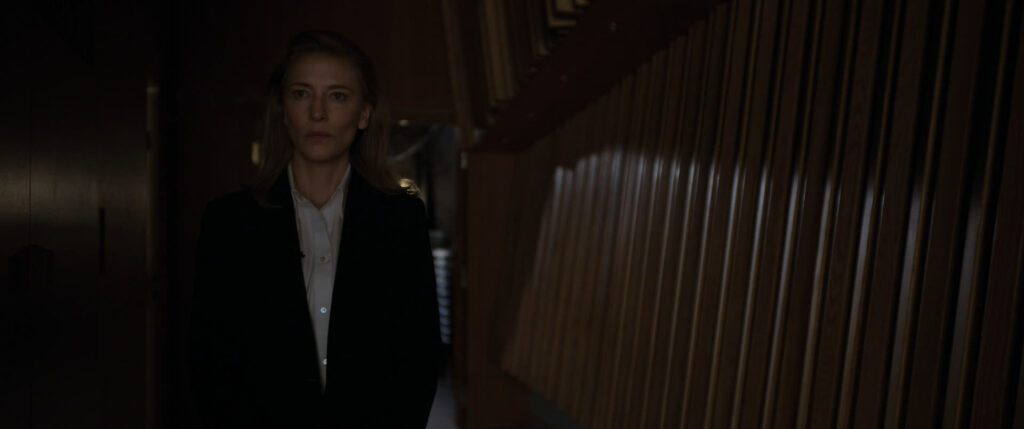
The opening frames of the movie offer a revealing preview of Lydia’s character as she waits to be interviewed.
Lydia is highly competent and refined, exhibiting an extreme level of meticulousness and self-control in every aspect of her life. Her deliberate nature is evident in the careful thought she puts into even the smallest decisions, such as the process of selecting how her concert’s portrait will be taken, including the choice of clothing and even getting a similar chair to Claudio Abbado delivered to her apartment to decide on the perfect complementary tone of her blue shirt.
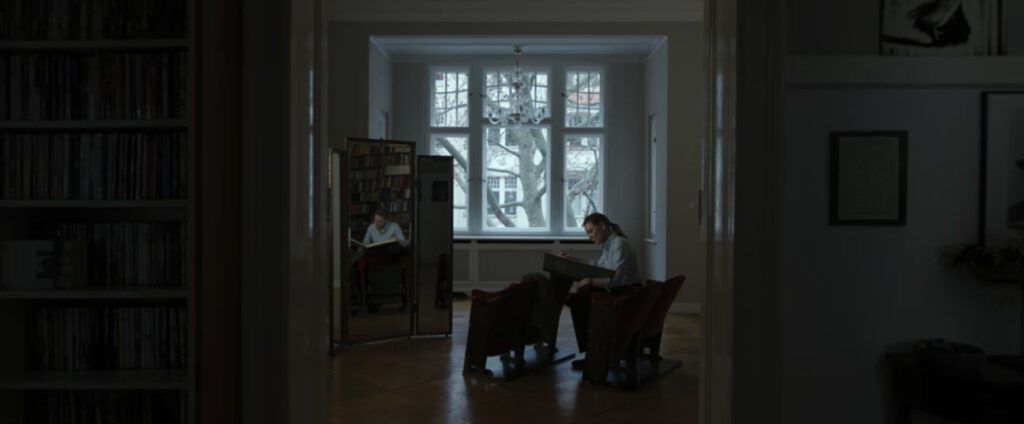
As she waits to be called on stage for her interview, it’s evident how she treats the venue staff with a charming attention, while her own assistant is essentially dismissed and treated like a servant. This brief scene demonstrates that, while she is fearless and bold, she also takes a somewhat utilitarian approach to her relationships.

The interview itself serves as an epiphany of Lydia’s genius, showcasing her undeniable expertise. She has earned her position not only through remarkable competence, including an in-depth knowledge of her field, but also through years of experiences and an extraordinary level of sophistication in her communication and presentation.
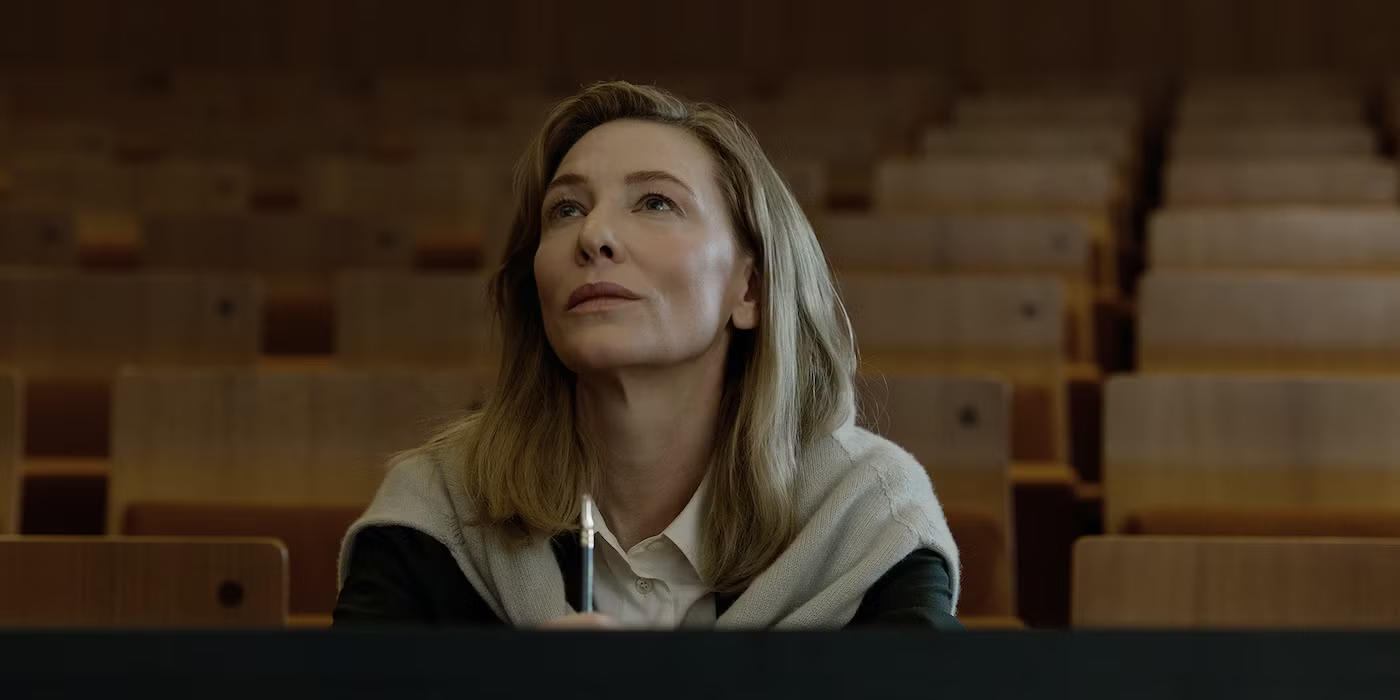
Her intellect seems exceptional, effortlessly navigating complex, abstract subjects with a level of precision that reveals a profound understanding, far beyond the grasp of the average audience, leaving them in awe.
She doesn’t make any effort to simplify her language for the public, unlike a popular figure like Steve Jobs, who would tailor his speech. Instead, she leans into the technicalities and historical references to showcase her brilliance, presenting herself as the intellectual type rather than the approachable moral one.

Ultimately Lydia embodies that Luciferian intellectual archetype. In many cases, the Luciferian intellectual is not viewed as inherently “evil,” but rather as a symbol of a path that seeks deeper understanding and liberation from societal constraints. Their actions and ideas often provoke discomfort, but this is seen as part of their challenge to convention, pushing others to rethink their own assumptions and limitations.
This archetype can be interpreted through various cultural lenses, such as in the works of philosophers like Friedrich Nietzsche, who challenged traditional values and championed the “Übermensch” (superman), or in literature, where Lucifer is often portrayed as a tragic hero who seeks knowledge and freedom, despite the consequences of producing hell around him.
The unattainable balance between power and morality

The core theme of the film goes beyond cancel culture; it explores the impossibility of balancing power and morality, and how we can’t separate the art from the artist, highlighting how the devil lies in the smallest of details.
Lydia Tár is by no means a flawless moral figure, but to be fair, positions of competence and power inherently require individuals with the skills to navigate power dynamics. It could even be argued that those who can navigate power dynamics with moral flexibility are often the ones who secure positions of power in the first place, as a reference to the slave and master’s morality.
The hypocritical aspect of the dominance hierarchy

There is undoubtedly a hypocritical aspect to the dominance hierarchy, where the public expects figures like Lydia Tár to be both compassionate and assertive, despite the widespread understanding that disagreeableness and mania is strongly linked to success and opposed to agreeableness and abnegation.
It’s a little bit like expecting Napoleon to exhibit the qualities of Mother Teresa while he’s strategizing for a battle. When the general public realize that Lydia is playing chess to further her own agenda, the public is shocked and begins to scrutinize her, even though her former collaborators climbed the same ladder using the same tactics.
The double standard
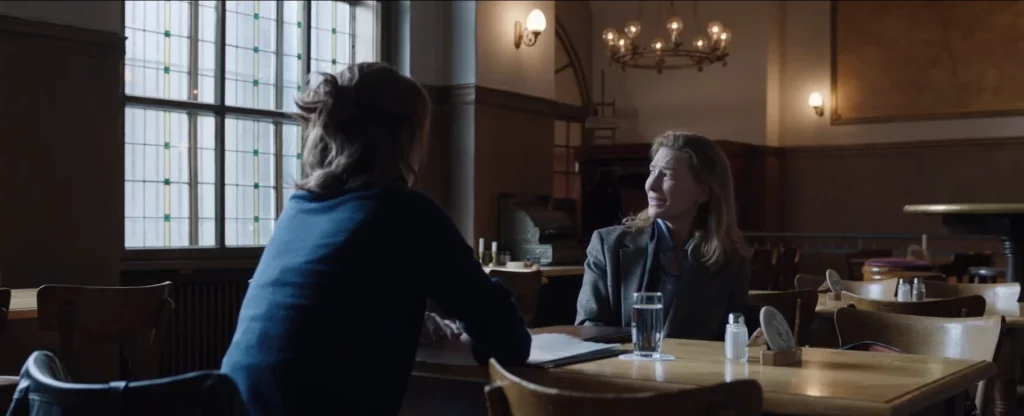
To illustrate this double standard more clearly, consider Fifty Shades of Grey, where Christian Grey manipulates Anastasia in a similar way, yet he’s elevated as a fantasy figure for women.
Yet, he employs the exact same techniques, including exploiting a power imbalance, using subtle manipulation, charm, flattery, emotional manipulation, and control. While Fifty Shades of Grey is celebrated, Lydia Tár faces cancellation and disgrace.
A parallel with politics
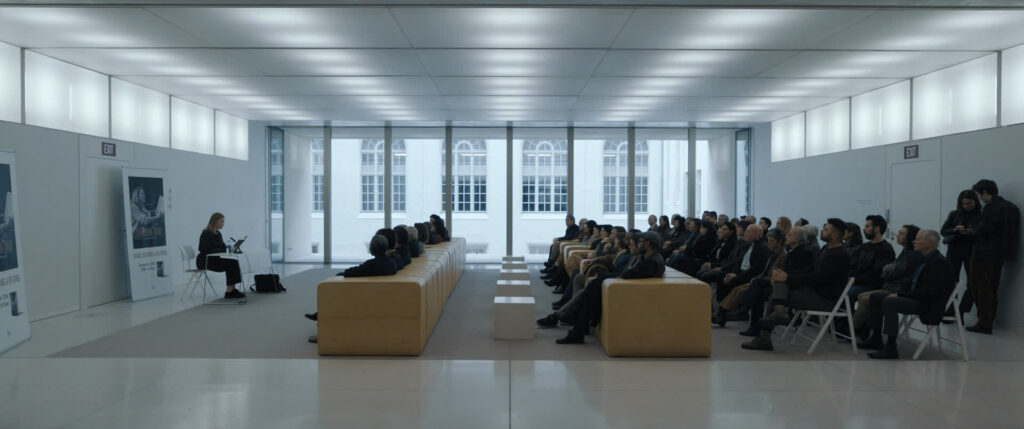
Clearly, this cancel culture is reminiscent of cases like Harvey Weinstein or Bill Cosby. While these cases are undeniably immoral and justifiably punished, we seem to tolerate the exploitative power dynamics employed by leaders in government and geopolitics, where young men are sent to die by the millions, yet no one faces consequences. This highlights how coercion and the punishment attached to it are ultimately determined by those in power although the film also suggests that conscience is also doing its part of the job.
The devil is in the details
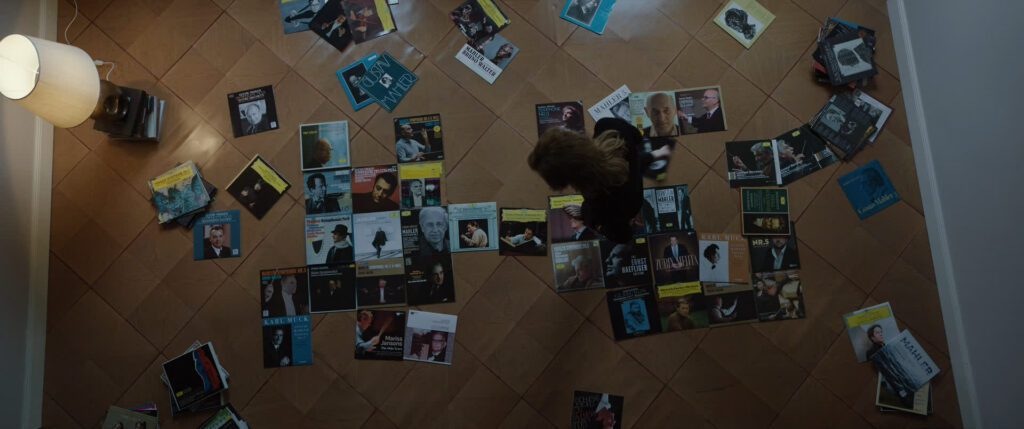
Morality is an incredibly complex subject. For instance, the moral framework for humans differs significantly from that of animals.
Take the example of a lion or an eagle, which uses aggression and power to claim what they believe they are due—this behavior is essentially accepted in the animal kingdom. However, in humans, such actions are deemed intolerable due to our heightened consciousness and ethical awareness although we accept that these animals are emblem of nations for these exact traits.
Lydia Tár, as portrayed in the film Tár, exhibits several moral flaws that make her a complex and morally ambiguous character. Some of the key flaws include:
1. Abuse of Power

Lydia uses her position of power and influence as the chief conductor of the Berlin Philharmonic to manipulate those around her. Her treatment of Olga and her handling of the power dynamics with other members of the orchestra show how she exploits her authority for personal gain, both professionally and emotionally.
2. Manipulation
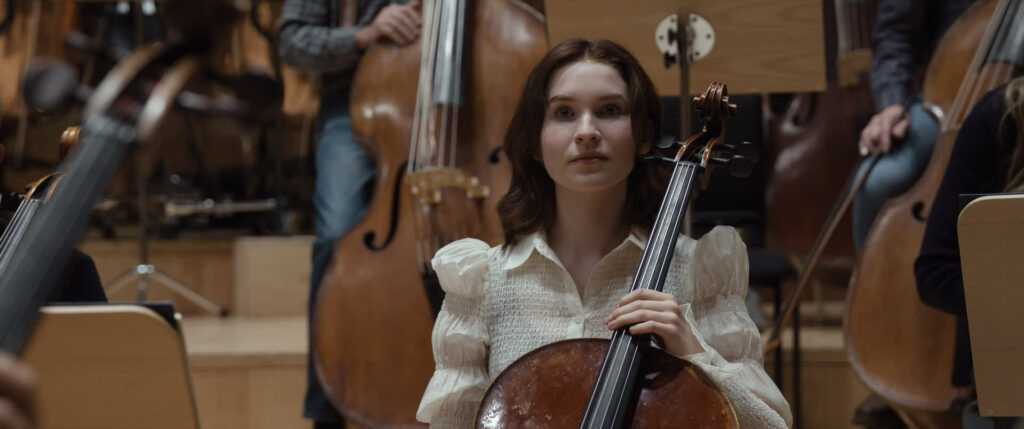
Throughout the film, Lydia engages in subtle manipulation, particularly with Olga, where she uses her charm and authority to create an emotional bond. However, this relationship is complicated by a lack of transparency and her self-interest. Lydia blurs the lines between mentorship, attraction, and control.
3. Lack of Accountability

Lydia demonstrates a lack of accountability for her actions, especially when confronted with her unethical behavior. She deflects responsibility, refusing to acknowledge the consequences of her choices, even when her professional life unravels due to her misconduct.
4. Hypocrisy
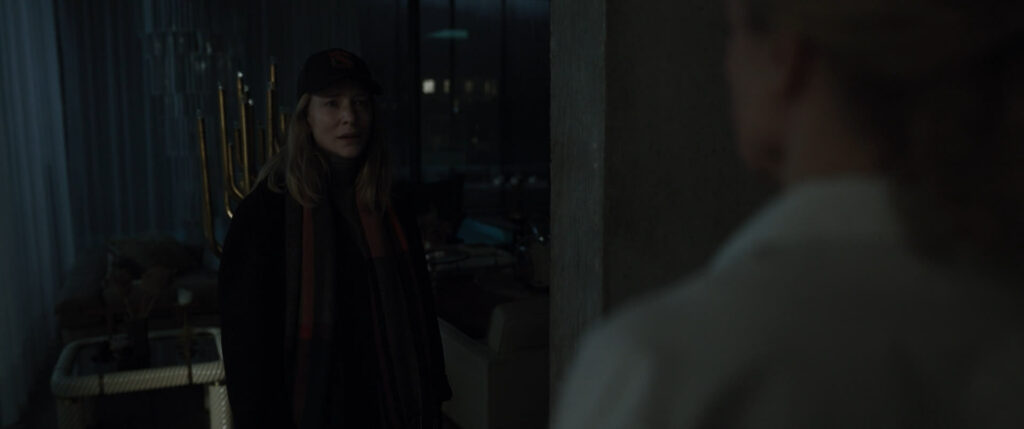
While Lydia presents herself as a professional and a cultural icon, she is quick to criticize others for moral failings while engaging in questionable behavior herself. This hypocrisy is evident in the way she dismisses people who do not meet her standards while indulging in her own moral lapses.
5. Disregard for Others
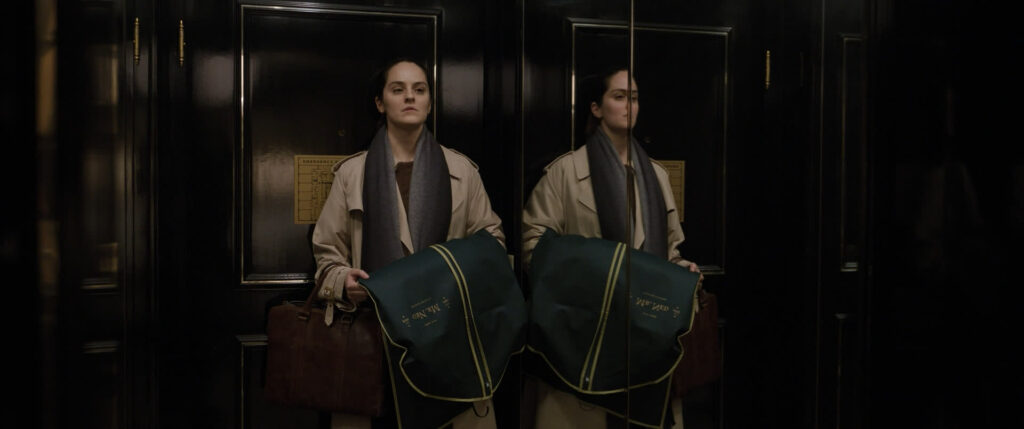
Lydia’s relationships, particularly with her assistant and her family, reveal her tendency to disregard the well-being of others in favor of her own ambitions. She expects others to serve her needs, often treating them as tools for her success without regard for their emotions or personal lives.
6. Emotional Detachment
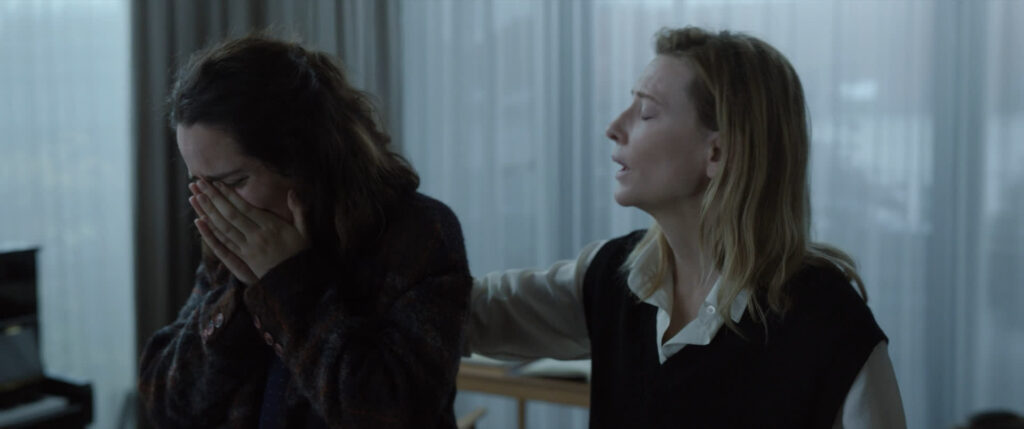
Lydia’s professional life is often at odds with her personal relationships. She struggles with maintaining emotional connections, choosing to prioritize her career and her ambitions over the people closest to her. This emotional detachment creates a void, contributing to her moral decline.
These flaws contribute to Lydia’s character being a study in ambition, power, and the moral compromises that come with success. Her actions are a reflection of the difficult and often conflicting choices individuals face when navigating power, influence, and personal integrity.
How these same traits can be tolerated in a larger context?
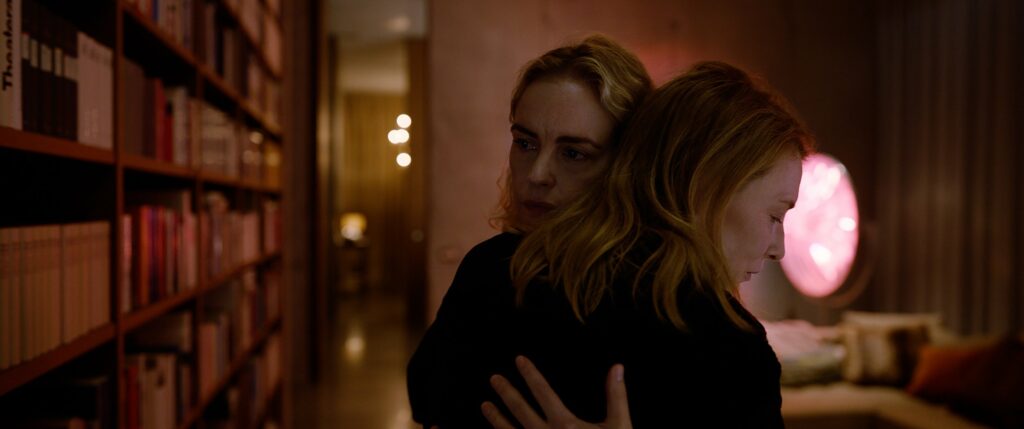
Ultimately, while these traits may be linked to immoral behavior, they can still be tolerated to some degree due to the complexity of human relationships and, notably, the perceived end goal.
1. Natural Power Dynamics

Democracy, although widely regarded as the ultimate form of governance, is a challenging concept to fully achieve in practice. At times, it can appear more as an illusion than a concrete, actionable reality.
In truth, every dynamic is shaped by opposing forces, which is why hierarchical structures naturally emerge. These power dynamics, whether acknowledged or not, influence how societies and systems function, making the ideal of a perfectly balanced democracy difficult to realize.
The more uniquely skilled and indispensable a person is, the more likely they are to have weight in their decisions, although this leadership should always serve the collective good which is very subjective. The collective good in this instance could be the art and not the feelings of the group for example.
2. Spontaneous influence
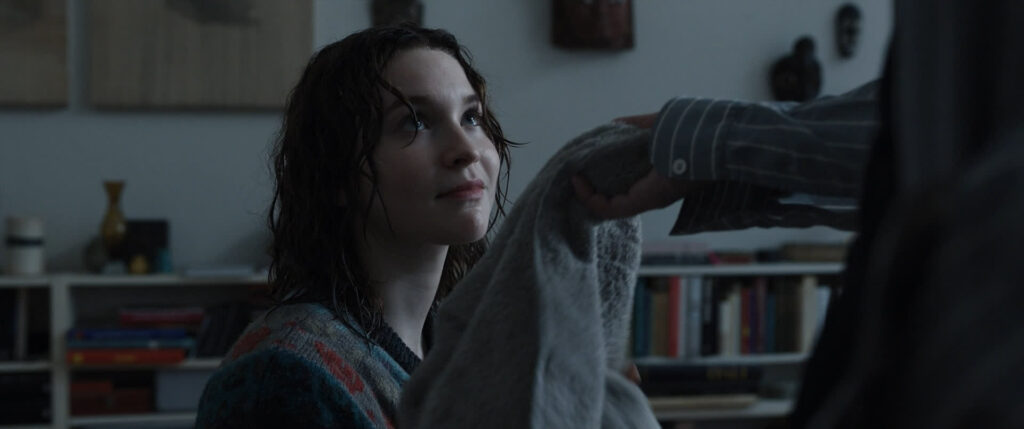
Most relationships, even healthy ones, begin with inexplicit courtship, flattery, and an inherent power imbalance. Hypergamy serves as a clear example of this dynamic. That’s why, on average, men are generally a few years older and taller than women in relationships.
Most relationships can be seen as transactional in nature, even the bond between a mother and child, although deeply rooted in unconditional love. This unconditional love may, in part, be a biological mechanism designed to ensure care and the survival of genes.
Olga understood this dynamic, recognizing Lydia’s sexuality, and plays her role by leveraging her charm and appearance to achieve her own goals. The fact that she turns a cold shoulder only after the scandal reveals that she is no different, prioritizing self-preservation and acting in her own best interests.
3. Lack of information

Regarding Lydia’s accountability, we lack concrete details about her past relationship with Krista. While the specifics of what occurred remain unclear, it doesn’t ultimately matter, as being accused of something can be just as damaging as being found guilty.
The decision to rotate Sebastian, for example, or to select Olga as the soloist for the second performance accompanying the main Mahler Symphony, appears to be based both on subjective and objective considerations aimed at achieving the best performance possible. Even the other member of the group seems to agree with these decisions.
It’s clear that she may be guilty of some power moves, such as canceling Krista and hindering her career proved in the mails her assistant didn’t erase, but we can’t say for certain whether Krista was indeed mentally unwell or not and if her cancellation was justified. The viewers act like jurors, having to deliver their verdict based on the limited information available to them, including their level of empathy for the protagonist.
At one point, Lydia uses her power to access her assistant’s emails, but she refrains from deleting them herself, which suggests that she still possesses some degree of integrity. She also appears to comfort her partner when needed, demonstrating that she has empathy. In the end, whether she is moral or immoral isn’t really clear-cut.
4. Honesty and open-mindedness
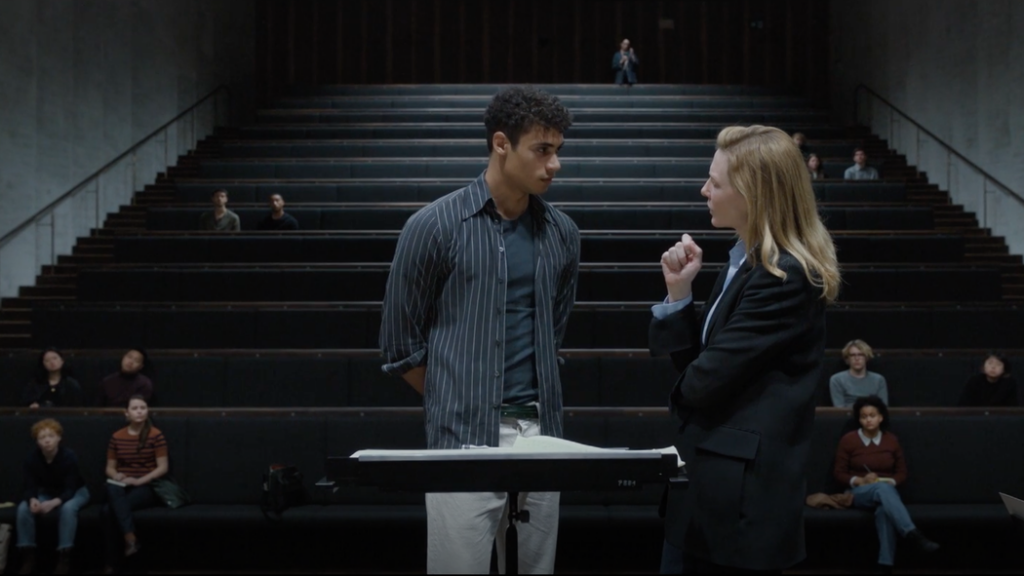
At one point, Lydia debates with a Juilliard student on whether it’s possible to separate the art from the artist, particularly since the student disagrees with J.S. Bach’s personal life, deeming it misogynistic for having fathered 20 children with two wives, despite the fact that such large families were common at the time, given that not all children would survive.
In my opinion, this serves as one of the central themes of the film: Can a person remain objective and focus solely on the art, or does their own identity and biases inevitably influence their perception?
Lydia seems to believe that operating based on group identity acts as a filter, preventing us from fully embracing every aspect of both humanity and art. In this exchange, she clearly challenges the student’s perspective, using a forceful and somewhat bullying approach to assert her viewpoint.
However, the way the student describes himself as a pangender, colored artist strongly echoes woke culture, which represents an extreme form of far-left ideology much more threatening.
5. No need for sugarcoating within the inner circle
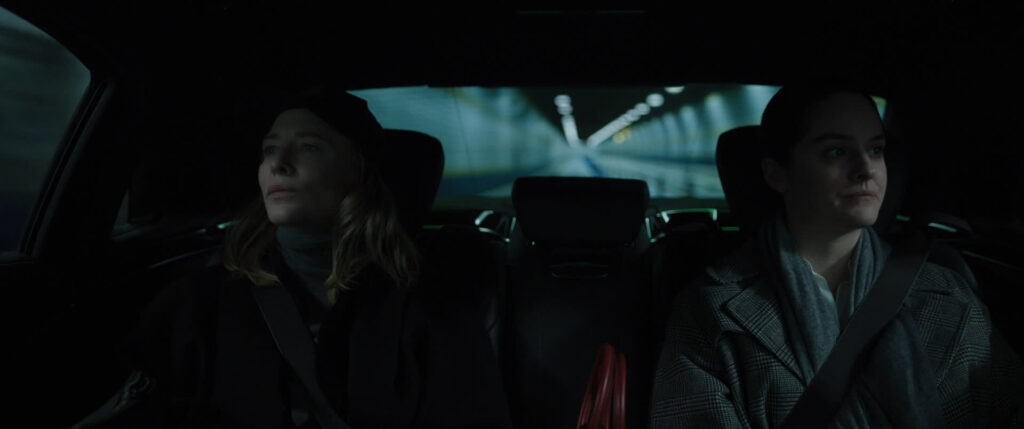
While this point may be difficult to argue, I would still suggest that in positions of power, individuals often don’t have the luxury of indulging in pretense.
For example, a manager doesn’t need to overly soften every interaction with their employees; they simply assert their authority and delegate tasks. While moments of humanity and mutual respect are essential, it’s worth noting that in environments like the military, this straightforward approach is generally accepted. Miranda Presley is the perfect example of that.
When it comes to alluding to a promotion and not following through with it for her assistant, we can’t be certain whether Francesca would have been the best fit for the role. However, I would argue that if she were given the position solely because she was Lydia’s assistant, rather than because she was the most qualified, this would be immoral and a misuse of power. Maybe Lydia truly considered her, but she didn’t meet the standards of the other candidates despite her efforts as an assistant.
6. Stoicism
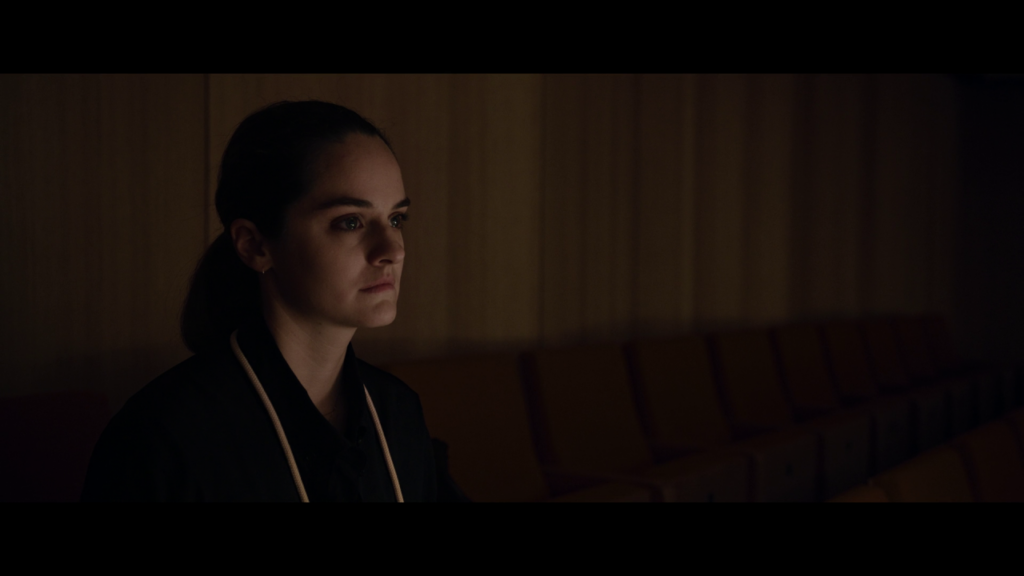
Emotional detachment can be both an advantage and a disadvantage. For instance, we are now exploring the integration of AI in boxing to eliminate biases in decision-making. Emotional detachment allows for a clearer path to truth without bias. However, on the flip side, people may perceive this detachment as lacking humanity.
In essence, Stoicism encourages emotional regulation in a way that aligns with virtuous living, aiming for balanced responses to life’s challenges, while emotional detachment can be a more passive withdrawal from emotions, potentially leading to disconnection from the full range of human experience.
The theory of extremes

Lydia Tár, much like anyone at the peak of a hierarchical structure or in a position of power and competence, is prone to exhibit extremes in behavior, such as disagreeableness, emotional detachment, and ruthlessness.
Disagreeableness is frequently linked to higher rates of imprisonment, for example. Disagreeable individuals tend to struggle with being submissive, so to speak. Now mix this with intelligence and moral relativism this makes a very dangerous but potent combinaison.
Typically, moral flexibility aligns with existentialist philosophy, which views morality as a social construct meant to harmonize relationships within groups, without any inherent or divine truth. Essentially they don’t believe that immorality will lead to their downfall by a divine power.
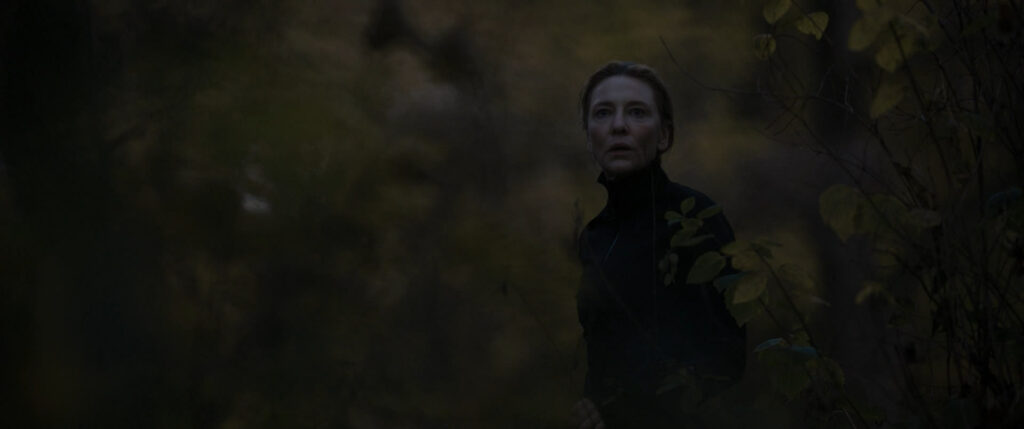
However, this film seems to suggest the contrary—that with great power comes great responsibilities. Even the scenes involving ghosts, deceased women, screams and other signs may be interpreted as manifestations of Lydia’s troubled psyche, calling her to account for her actions.
In both design and in life, every decision involves compromises. If you aim to be as razor sharp as possible, you’ll need to sacrifice certain aspects of your compassion. Just like a car can’t have all its features performing at their peak simultaneously, as improving some aspects, such as horsepower, often comes at the expense of others, like weight and control.
Conclusion

Lydia Tár’s actions in the film aren’t explicitly immoral in a clear-cut sense, but they do reflect morally ambiguous behavior. Throughout the movie, she demonstrates a blend of competence, ruthlessness, and manipulation to maintain her position and achieve her goals.
Her use of power dynamics, particularly with Olga and Krista, raises ethical questions about consent, boundaries, and exploitation. However, Lydia’s actions are often motivated by a desire to maintain control in a highly competitive, male-dominated field, and her decisions are not always based on malice, but rather on self-preservation, ambition and natural attraction.
In a broader sense, Lydia embodies the complex interplay between power, morality, and ambition, making her a morally gray character rather than explicitly immoral. But, as always, the devil is in the details, and without a sense of a greater purpose or a higher good, it becomes difficult for people to tolerate such excesses.
This is why benevolence and kindness naturally become the ultimate guiding principles in leadership, even in morally complex and fiercely competitive environments.
The question persists: Does unchecked power inevitably lead to the destruction of the soul and downfall?


GIPHY App Key not set. Please check settings